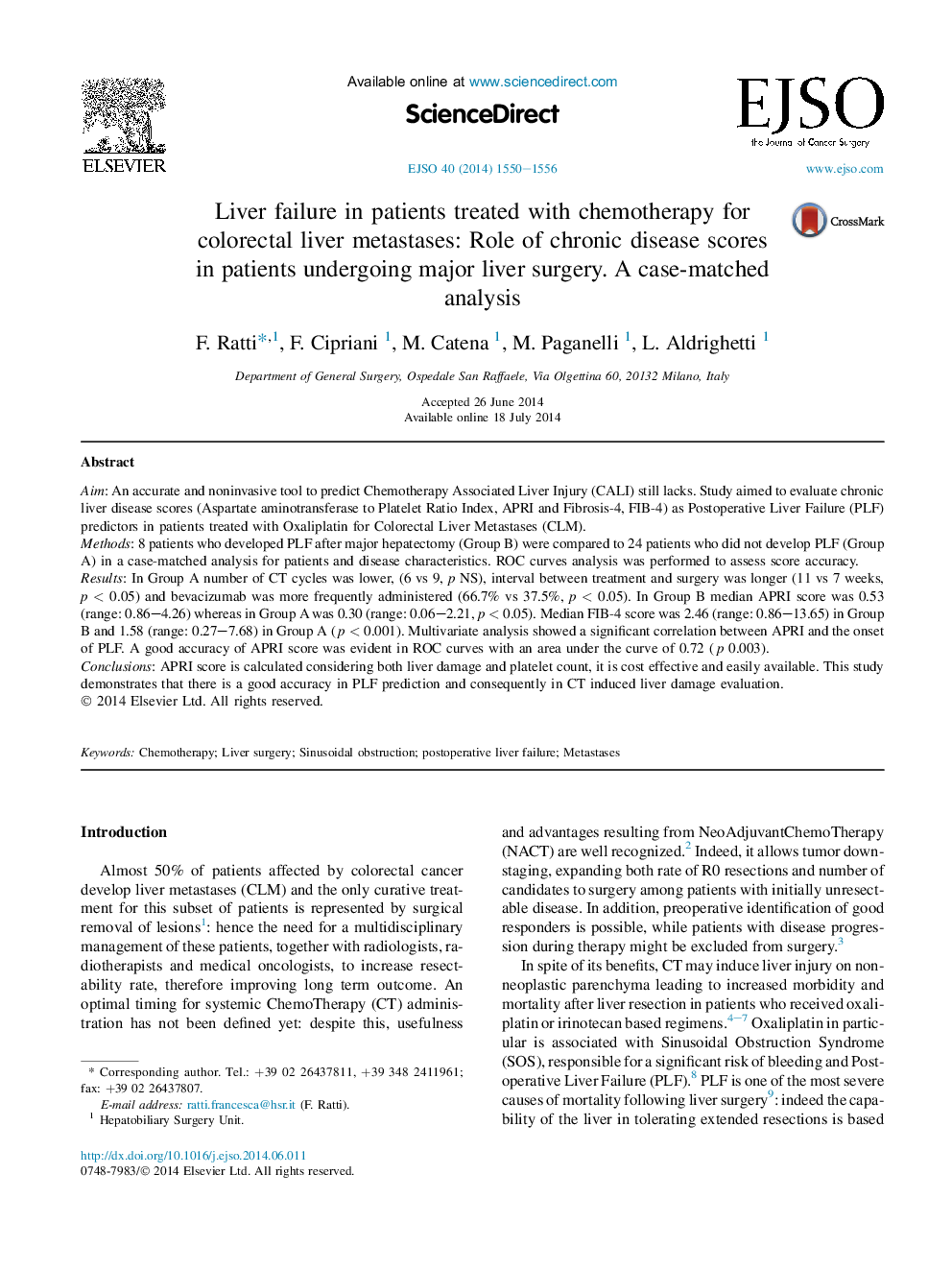| Article ID | Journal | Published Year | Pages | File Type |
|---|---|---|---|---|
| 3985001 | European Journal of Surgical Oncology (EJSO) | 2014 | 7 Pages |
AimAn accurate and noninvasive tool to predict Chemotherapy Associated Liver Injury (CALI) still lacks. Study aimed to evaluate chronic liver disease scores (Aspartate aminotransferase to Platelet Ratio Index, APRI and Fibrosis-4, FIB-4) as Postoperative Liver Failure (PLF) predictors in patients treated with Oxaliplatin for Colorectal Liver Metastases (CLM).Methods8 patients who developed PLF after major hepatectomy (Group B) were compared to 24 patients who did not develop PLF (Group A) in a case-matched analysis for patients and disease characteristics. ROC curves analysis was performed to assess score accuracy.ResultsIn Group A number of CT cycles was lower, (6 vs 9, p NS), interval between treatment and surgery was longer (11 vs 7 weeks, p < 0.05) and bevacizumab was more frequently administered (66.7% vs 37.5%, p < 0.05). In Group B median APRI score was 0.53 (range: 0.86–4.26) whereas in Group A was 0.30 (range: 0.06–2.21, p < 0.05). Median FIB-4 score was 2.46 (range: 0.86–13.65) in Group B and 1.58 (range: 0.27–7.68) in Group A (p < 0.001). Multivariate analysis showed a significant correlation between APRI and the onset of PLF. A good accuracy of APRI score was evident in ROC curves with an area under the curve of 0.72 (p 0.003).ConclusionsAPRI score is calculated considering both liver damage and platelet count, it is cost effective and easily available. This study demonstrates that there is a good accuracy in PLF prediction and consequently in CT induced liver damage evaluation.
